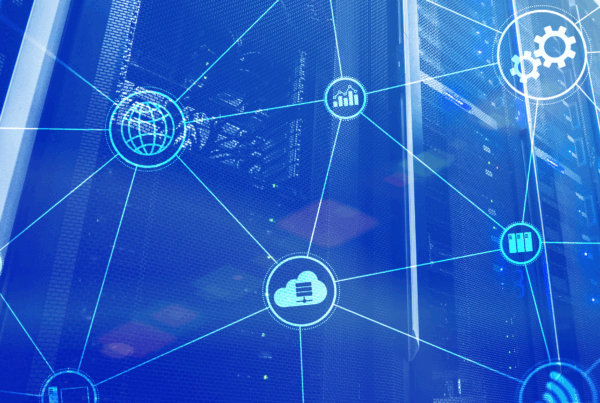Security resilience is a business’ ability to respond to and defend against cybersecurity threats that arise from direct attacks, latent threats, misconfigurations, and other vectors. Poor resilience can lead to data breaches, system interruptions, ransomware attacks, and even physical damage to a business’ property. Improving security resilience requires a company to focus on protecting data from outside threats, such as hackers, and shoring up internal processes to avoid security gaps and misconfigurations. Identifying and fixing the causes of poor security resilience requires looking at the totality of a company’s cybersecurity infrastructure and accessing outside consulting resources that can help assess and improve the business’ cybersecurity posture.
The outcomes that shape successful resilience are determined by the business’ current IT environment, the cybersecurity history of the company, and the priorities determined by the data or content the business works with. For example, businesses that have already been the target of successful data breaches may value mitigating financial losses and improving cybersecurity defense. On the other hand, new businesses that are establishing their IT environment may value responding to the evolving outside threat landscape and ensuring the company grows securely. Companies that want to improve their resilience will want to think about the areas they value improvement in and build a strategy that leads to the outcomes deemed a high priority.
Some cybersecurity resilience outcomes include:
- Cybersecurity incident prevention
- Loss and damages mitigation
- Responding to industry threat landscapes
- Secure growth
- Maintaining security resources
- Appropriately budgeting for cybersecurity resources
Cultures of Security Resilience

The IT department alone cannot achieve a high level of security resilience for the entire company. Only by prioritizing cybersecurity from the executive level down can a business achieve the cybersecurity outcomes that best help it operate securely. Cisco’s Security Outcomes Report Volume 3 reports a 39% increase in the resilience score of companies that have backing from the C-suite.1 Support from the company’s leadership can significantly improve the acquisition of security solutions and consultations needed to identify and strategize improvements to cybersecurity. Business owners and executives are encouraged to play an active role in reaching security resilience outcomes and highlighting cybersecurity as a key component of company culture.
A strong cybersecurity culture within a company means each employee has the technology, security solutions, and training needed to best protect company data. It also means that employees at every level are informed on why security decisions are being made and included as part of the solution whenever possible. Reporting malicious emails, following premises security policies, and receiving adequate training on how to handle sensitive data are essential starting points for creating a culture focused on cybersecurity. If a company knows the security resilience outcomes it wants to target for improvement, each employee should have a clear understanding of how they can make a positive impact on success.

Resource Allocation

Cybersecurity incidents can cause spikes in the need for resources and staff attention without much warning. For this reason, businesses can improve their security resilience by accounting for this fluctuating need for resources as they strategize hiring and resource distribution. If the IT staff have a healthy number of staff and the resources needed to remain agile, then a business can better respond to emerging events and stay on top of patching and regular security maintenance. For companies that don’t need a large staff or cannot budget for a large IT department, IT consultants can provide a high level of expertise and informed decision making in emergency situations.
Security Simplification

When planning effective resource distribution for security needs, a business can improve their security resilience by simplifying their cloud and hybrid environments. By implementing security solutions that better orchestrate a variety of control panels and cloud environments, an IT team can streamline alerts and improve their response times. Gaps in security coverage can arise as a business’ environment becomes more complex with cloud-based tools or hybrid work solutions, so it is essential that companies strategize their implementation and regularly receive consultations and assessments from either their IT team or an IT consultant.
Layered Security

Cybersecurity solutions constitute the backbone of any company’s security resilience, and implementing the solutions that provide the best defense can make or break a business’ ability to defend itself from threats. Companies of all sizes can benefit from a layered approach to security that implements a next-generation firewall, endpoint protection, and multifactor authentication. These services working together can provide automatic remediation for a wide range of threats that smaller businesses face, and they provide a strong base for larger companies to build their cybersecurity infrastructure on. Finding the right security solutions for your business is essential, so it’s recommended to work with a cybersecurity consultant to best ensure company endpoints are protected on the device and department levels.
For companies that have a hybrid work environment or fully remote workers, edge security must be a high priority for security resilience. Secure access service edge (SASE) allows businesses to bring networking and cloud security together in a streamlined experience that centralizes management and allows IT infrastructure to scale with company growth. For more information on SASE, read our introductory article! SASE in combination with zero trust and other strategies can help a business improve its cybersecurity resilience and customize solutions to make a unique IT environment that helps achieve desired resilience outcomes.
Summary
Improving security resilience begins with having support from business stakeholders to back the IT department in acquiring security solutions and pushing for a security-minded company culture. This company culture must be backed by a willingness to allocate resources security staff need to protect the business and have the flexibility to respond to emerging events. If resources are scarce, IT consultants can provide valuable support to help businesses remain agile when additional resources are needed. Furthermore, by simplifying multi-cloud environments and better orchestrating the entire environment, a business can take advantage of layered security, zero trust, and SASE to create an environment that can identify and respond to threats quickly.
Security resilience relies on a variety of complex security factors, and businesses can easily deviate from best practices in the long term. For this reason and many others, Robinett Consulting recommends that businesses work with a trusted IT consultant with expertise in their industry for regular assessments and consultations. The best IT consultant for your business will provide flexible services that help bring in security resources while still staying within budget. If you think your business should build a relationship with a reliable IT consultant, then our security specialists are ready to provide a complimentary consultation to see how we can provide you IT as it should be!




